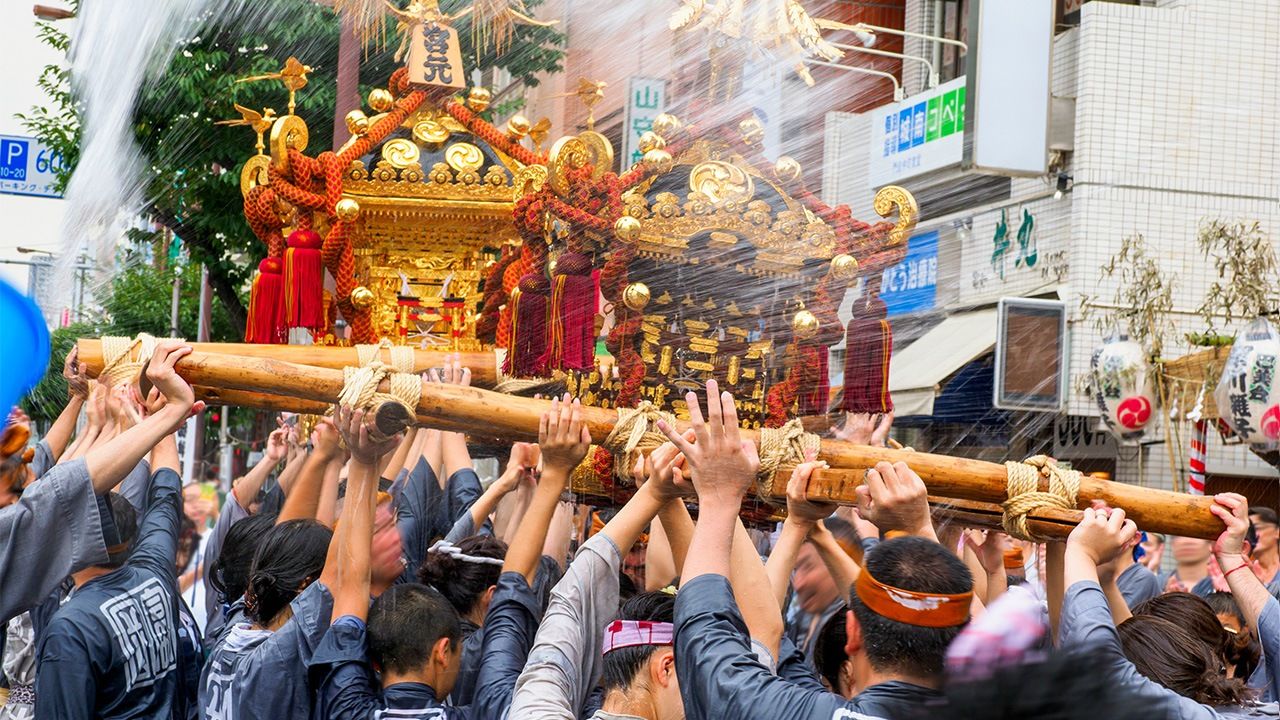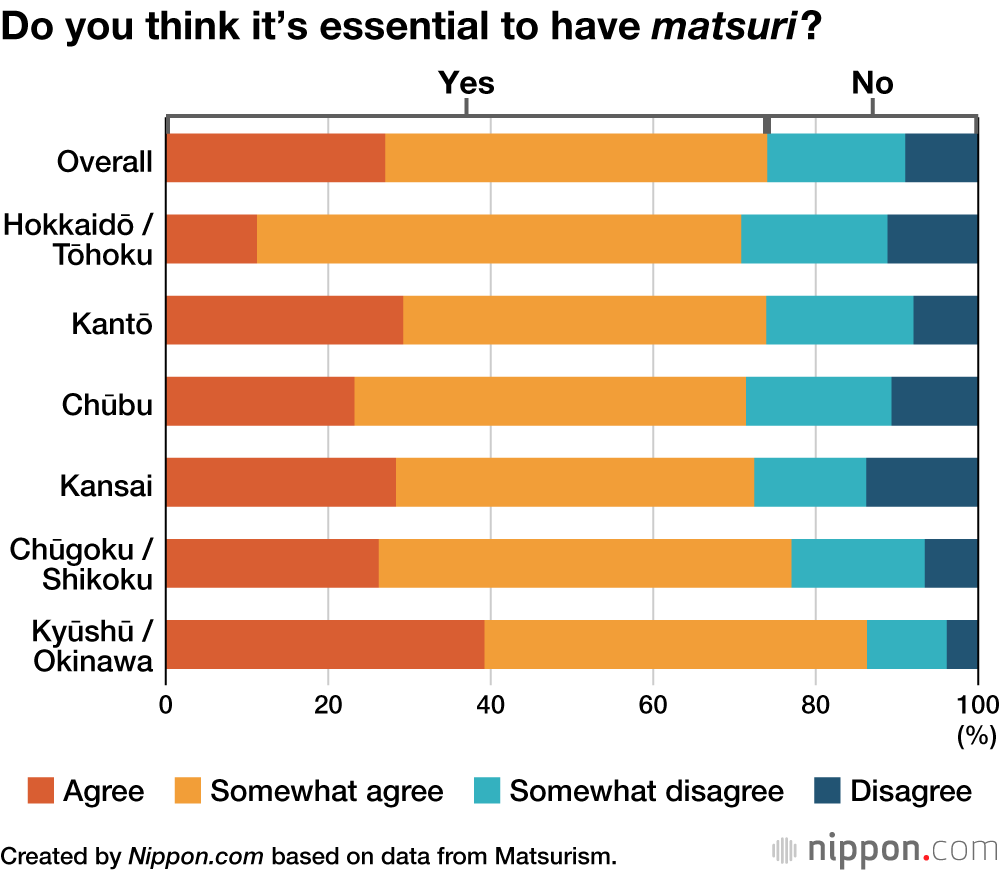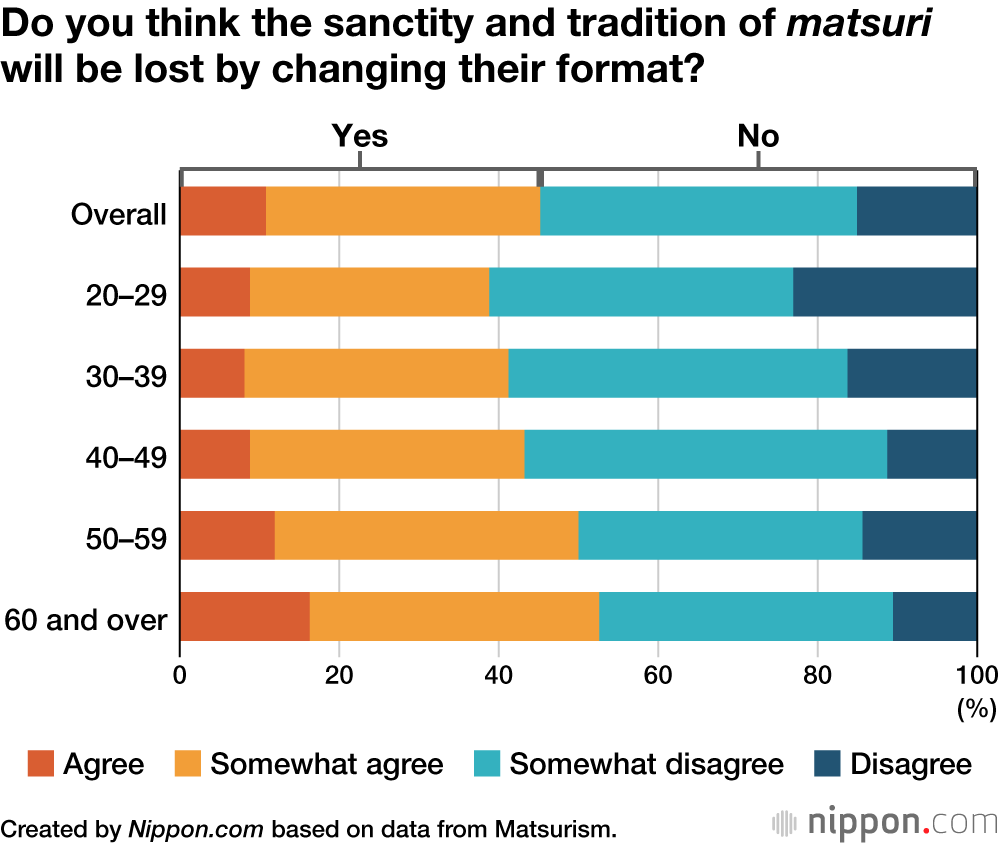
“Matsuri” Future: Most Japanese Want to Preserve Festivals, But Are Split on Deference to Tradition
Culture History- English
- 日本語
- 简体字
- 繁體字
- Français
- Español
- العربية
- Русский
The COVID-19 pandemic meant a lot of matsuri, Japanese traditional regional festivals, had to be canceled or held on a smaller scale, but now they are making a full comeback. Matsurism, an organization engaged in developing tourism that offers opportunities to participate in matsuri, ran a survey asking respondents if they thought such festivals should be preserved, to which a total of 74.0% said they either “agree” or “somewhat agree.” Notably, 86.3% of those in Kyūshū and Okinawa felt a need to keep matsuri going.
The overwhelming majority supported the restart of matsuri with 66.4% overall in agreement, while 11.3% said they disagreed, either completely or to some extent.
In the case of festivals where there were traditional restrictions, such as only local residents or men being able to participate, 49.0% of respondents felt that it was “important to understand the historical background, but changes should be made where possible.” Those who said that “tradition needs to be respected” accounted for 38.6% and there was a clear generational split for this thinking, with nearly half of those aged 50 or over wanting matsuri to be continued in the same traditional way.
In recent years, due to the aging of matsuri participants, there has been a serious shortage of people who can carry the mikoshi or portable shrine at festivals. When respondents were asked if the mikoshi should continue to be conveyed by people to preserve tradition or instead be conveyed by truck to reduce the number of people needed, 33.1% were in favor of people, while 11.3% preferred by truck. The results showed that the older the respondent, the more the people of that generation felt that tradition had to be preserved.
People were also asked if they thought changing the format of matsuri would mean a loss of sanctity and tradition. Overall, those who agreed or somewhat agreed was 45.2%, while those who disagreed or somewhat disagreed were 54.9%. While not a significant gap, it did reveal that more than half of respondents accepted that a change in the times inevitably leads to other changes too.
(Translated from Japanese. Banner photo © Pixta.)





